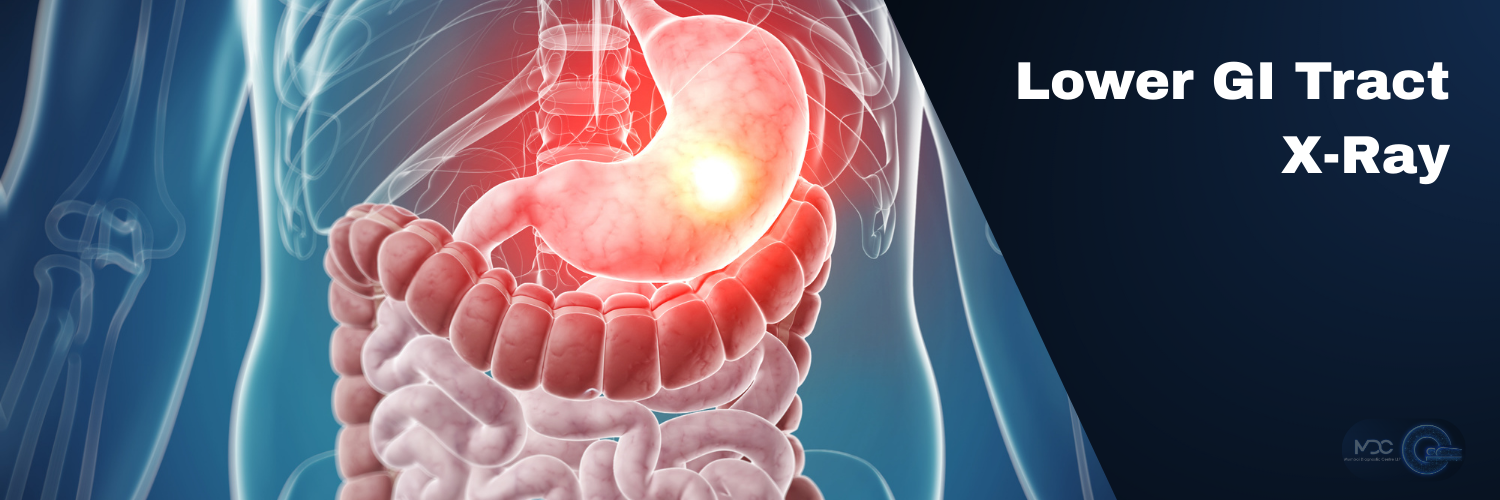What is Lower GI Tract X-ray?
A Lower GI Tract X-ray is a simple test to look inside your large intestine (colon and rectum). It uses a special contrast liquid called barium and real-time X-ray imaging (fluoroscopy).
It’s a painless and non-invasive alternative to a colonoscopy.
Why is it done?
This test helps doctors understand the cause of digestive or bowel problems. It may be recommended if you have:
- Pain while passing stool
- Constipation that doesn’t go away
- Blood in your stool
- Signs of blockage or indigestion in the large intestine
- Unexplained weight loss or weakness
- Suspected growths, tumours, or cancer
- Any irregularities in bowel function
How to prepare
You will get detailed instructions while booking the scan. Here’s what is usually expected:
- No food or drink after midnight the night before your scan
- Drink only clear liquids (like water or juice) the day before
- Avoid milk and dairy products
- Take only essential medications, and only with small sips of water
- You may need to take a laxative or enema the night before to clean your bowels
- Empty your bladder before the scan
- Wear comfortable clothes and avoid jewellery or metal objects
- Inform the centre if you're pregnant or may be pregnant
- Let us know if you use an IUD (intrauterine device)
How the scan is done
- The test is usually done in the morning and does not require hospital admission
- First, an X-ray is taken to check if your bowel is clean
- Then, barium (sometimes along with air or water) is gently inserted into your colon through a small tube
- The barium coats the inside of your colon and helps make the X-ray images clearer
- Several X-rays are taken from different angles. You may be asked to change positions
- You will need to stay still and may be asked to hold your breath briefly during imaging
- After the scan, you can use the washroom to pass out the barium
- You can eat normally after the test
Things to bring
- Your complete medical file and prescriptions
- A Serum Creatinine blood test report (not older than 4 weeks) to check your kidney function
If you haven’t done it recently, you can get it done at our centre on the same day
How long does it take?
Total time at the centre: Around 1 hour
Actual scan time: 10 to 15 minutes
Do I need an appointment?
Appointments are not mandatory, but it’s best to confirm before coming.
